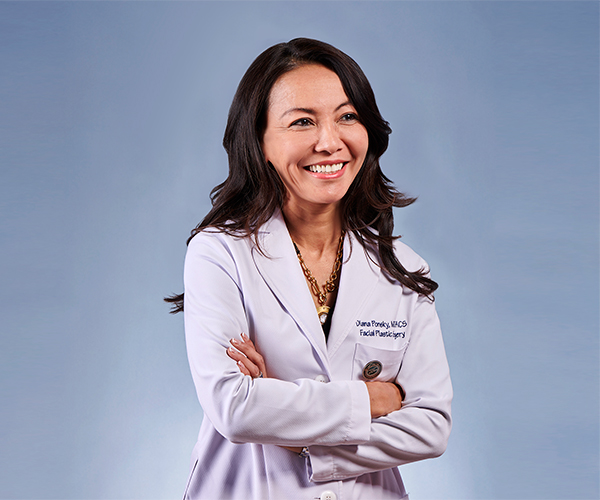Skin Cancer Screening
More than 2 million people in the United States are diagnosed with non-melanoma skin cancers every year. Have a doctor examine your skin and look for abnormal moles or discolorations.
Immunizations
In addition to the tetanus, diphtheria and acellular pertussis (Tdap) and flu vaccines, those in their early 20s should get vaccinated against human papillomavirus and hepatitis A and B.
Cervical Cancer Screening
"Women should make sure to have a Pap smear done in their 20s," says MetroHealth System dermatologist Dr. Pamela H. Davis. "Then they only need to go back for one every three years."
Testicular Cancer Screening
Most testicular cancers occur in men between the ages of 20 and 34, so screening is especially important for early detection.
Cholesterol Check
High low-density lipoprotein or bad cholesterol, which is associated with heart disease, is important to catch early. "Many of my young adult patients learn that they have high cholesterol when we do a blood test before prescribing medications for skin problems, such as acne," says Davis.
Blood Pressure Screening
Get this once every two years. The American Heart Association says less than 120/80 is a normal reading.
Diabetes Screening
Physical Exam
Visit your primary care physician every two to three years for this thorough checkup. While the physical portion of the exam takes about seven to eight minutes, you can discuss topics such as finding time for exercise and managing stress. "It's very worthwhile to spend time talking with your doctor about those things, trying to keep things in perspective," says Dr. William Steiner, an internal medicine specialist at University Hospitals.
Cholesterol Check
Men over the age of 35 should make cholesterol tests a priority, while women can wait until about 45. Research shows women — especially in their childbearing years — produce high levels of estrogen, which tend to raise their high-density lipoprotein cholesterol (the good kind) level.
Cervical Cancer Screening
For women in their 30s, cervical cancer is a risk. Women should get a Pap smear every three years or specialized human papillomavirus test every five years (it tests the same sample of cells removed from your cervix during a liquid-based Pap test). "Virtually all cervical cancer comes from an HPV infection," Steiner says.
Testicular Cancer Screening
According to the National Cancer Institute, 95.3 percent of men diagnosed with testicular cancer survive five years or more.
Immunizations
Mammogram
Women in their 40s should start getting this annual breast exam while still performing monthly self exams. The rate of breast cancer for women in their 30s is 1 in 227 — and that rises to 1 in 68 for women in their 40s.
Eye Exam
The American Academy of Ophthalmology recommends a baseline eye exam at 40 since that's when eye diseases such as glaucoma start impacting adults.
Hearing Test
"As we age, our hearing does," says Dr. Joseph Finocchio, associate director of the Internal Medicine Center of Akron at Akron General. "Through natural process, [it] becomes less preserved."
Immunizations
Get an influenza shot annually — an estimated 147.8 million people in the U.S. received the seasonal vaccine during last flu season — and a tetanus booster every 10 years. "Having immunizations done, risk factors are being mitigated," Finocchio says.
Cholesterol Check
Get your cholesterol checked every five years. For every 10 years a person has even slightly high levels of cholesterol between the ages of 35 and 55, their risk of heart disease increases by nearly 40 percent.
Blood Pressure Screening
Colonoscopy
Get this 30-minute exam beginning in your 50s. It looks at the inside lining of the colon, where precancerous polyps develop. "High-risk patients with a family history of colon cancer should be tested every five years," says Dr. Richard Lang, medical director of Executive Health at Cleveland Clinic. "Those who test clean, every 10."
PSA Test
This blood test is used to screen for prostate cancer by measuring the levels of prostate specific antigen. Men in their 50s should discuss the pros and cons of the screening with their physician since not all high PSA levels indicate cancer and can lead to unnecessary treatments.
Diabetes Screening
Have this done as recommended by your physician. Untreated diabetes can lead to heart disease, kidney failure and blindness. According to the American Diabetes Association, 8.1 million Americans have undiagnosed diabetes.
Blood Pressure Screening
This is an effective indicator of hypertension. Also talk to your doctor about starting an aspirin therapy to help reduce the risk of a heart attack or stroke.
Eye Exam
According to the Vision Council, 11.2 percent of Americans wear reading glasses. "Retina health is important — even if you're using reading glasses, you could have other eye issues like cataracts," says Lang.
Bone Scan
Approximately 40 percent of postmenopausal women in the U.S. have low bone density and 7 percent have osteoporosis. This 30-90 minute test is recommended for women ages 50-65.
Colonoscopy
Men and women should have this test done in their 50s, then every 10 years afterward.
Stress Test
Sixty-somethings who want to become more active should get this done at least once. Doctors will monitor your heart rate and blood pressure levels while you run or walk on a treadmill to make sure your body can handle the exertion. "Even people who are more or less athletic need to [train] ourselves to do things," says Dr. Joy Marshall, a family medicine doctor at St. Vincent Charity Medical Center.
Flu Shot
According to the Centers for Disease Control and Prevention, nearly 60 percent of influenza-related hospitalizations this season have occurred among people older than 65.
Bone Mineral Density Test
Women over 60 and men over 70 should get tested for osteoporosis. "As we get older, the cells that break down bone take over a little bit more, so we get more bone loss than we get bone growth," Marshall says. A doctor will X-ray your hips and lower spine, test your wrists and ankles, and compare your bone growth to an average younger adult's to determine if there's any significant loss.
Eye exam
Marshall suggests being tested by an ophthalmologist at least every one to two years since there's an increase in cataracts and glaucoma after 60. "You can actually lose vision in a part of your eye without even knowing it because your eyes can cover it up," Marshall says.




